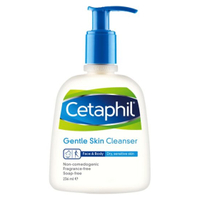9 important skincare tips you should be following, according to dermatologists
Experts say these skincare tips are what you should be taking to heart for healthy, flawless skin
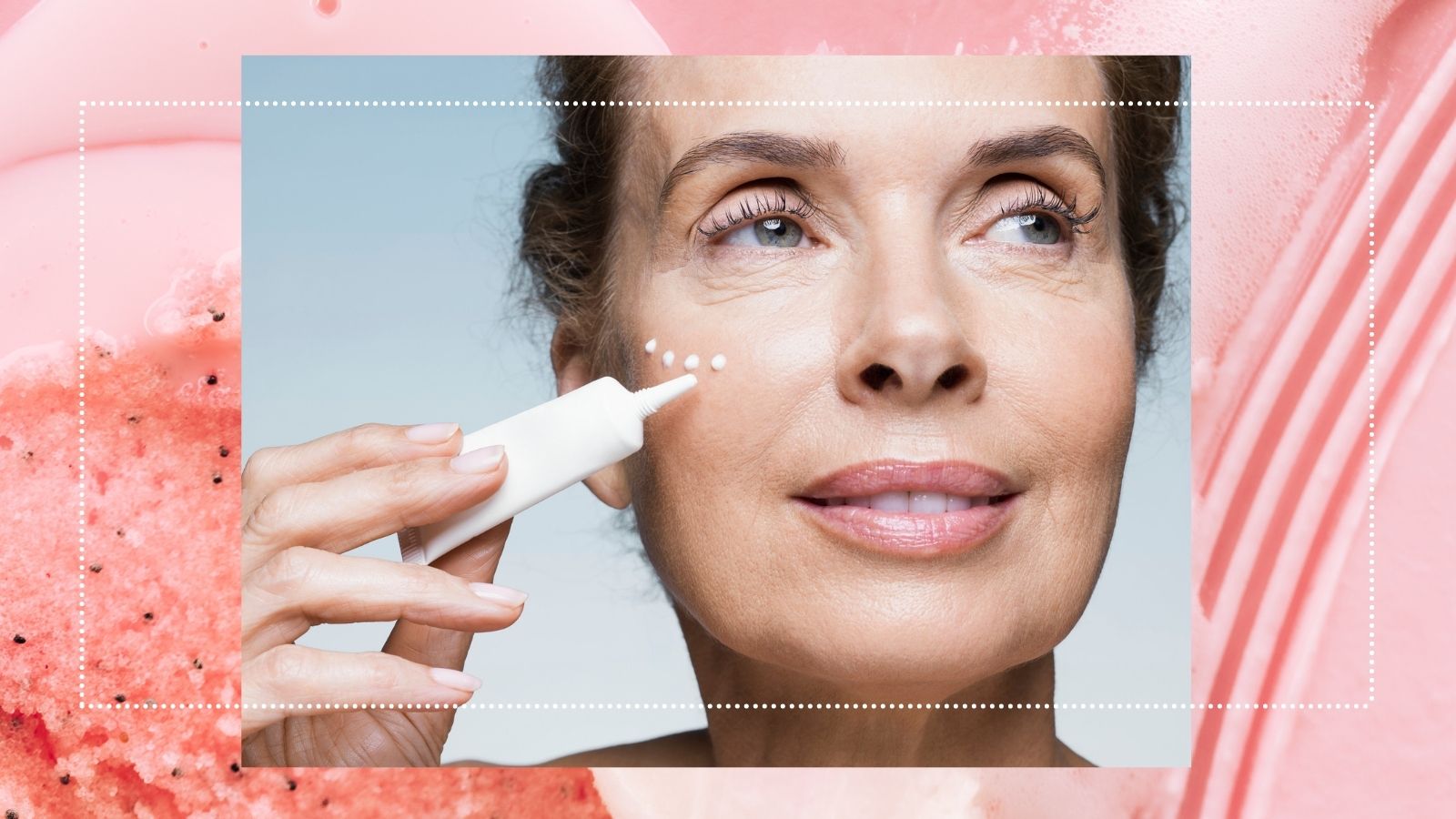

When it comes to skincare tips, we’ve heard it all and then some: Avoid the sun, get your eight hours’ worth of sleep, coconut oil is a life-changer, and of course, hydrate, hydrate, hydrate. Without a doubt, there’s an overwhelming amount of information to take in—most of it factual and well-intentioned. Others trendy or esoteric, some even intuitive or handed down from generations past, spread by word of mouth.
Skincare, however, isn’t so binary—there’s a lot of nuances and, yes, actual science, involved on the road to a healthy, flawless complexion. Not to mention that as we get older, things can get even more complex, as our skincare priorities change as we age.
Whether your goals are preventing lines and wrinkles, getting that youthful radiance, achieving clear, blemish-free skin so you can enjoy wearing the best foundation available, or all of the above, a good grasp of proper skincare tips can help get you there. We spoke with Dr. Paru Chaudhari and Dr. Justin Gordon, board-certified dermatologists, educators, and founders of skincare brand kitavaMD, to separate fact from fiction and help give some clear, basic guidelines on how to get your best skin yet, fake news be damned.
Skincare tips you should be following, as recommended by dermatologists
1. Don't touch your face
In light of current events, this tip shouldn't be too hard to follow as we're all used to avoiding touching our faces with our hands these days. The adage holds true when it comes to basic skincare as well: "Touching your face can spread dirt, oil, and bacteria from your hands to your face, which can lead to clogged pores, irritation and breakouts," Dr. Chaudhari says. "It’s best to only touch your face when cleansing, moisturizing, or applying products like sunscreen or makeup—but just make sure those hands are clean first."
2. Wash your face with a gentle cleanser twice daily
Dr. Gordon says that it's best to wash your face twice a day for most skin types—morning and evening. "It’s important to cleanse your face in the evening to remove any makeup, dirt, and impurities that have gathered throughout the day," he advises. "In the morning, cleansing is important to remove any sweat and oil that may have occurred overnight. For twice-daily use, a gentle fragrance-free cleanser that lightly exfoliates is recommended over a harsher scrub or physical exfoliant."
Cetaphil Gentle Skin Cleanser
We would be remiss not to highlight this classic, particularly as a starting point in the world of gentle facial cleansers. Its pH level is pretty much neutral, meaning it won't harm skin or, perhaps, more importantly, interfere with any acne medication or anti-aging actives. If you have sensitive skin or are noticing it getting more reactive lately, this non-foaming wash (and favorite of dermatologists everywhere) could be a sensible fit into your skincare routine.
3. Skip the hot shower
Dr. Chaudhari warns that hot water can strip away important natural oils, leading to dry skin. "Instead, try lukewarm water when bathing or washing the skin," she says. "If you have dry skin, make sure to also moisturize after bathing to help lock in moisture."
If you're a big fan of a steamy shower (and who isn't, especially in the colder months?), you can limit the time spent under the shower stream by pre-washing your face in the sink with cooler water.
Sign up to our free daily email for the latest royal and entertainment news, interesting opinion, expert advice on styling and beauty trends, and no-nonsense guides to the health and wellness questions you want answered.
4. If you have a breakout, avoid harsh scrubbing or physical exfoliants
On getting overzealous with face washing, especially during a pimple flare-up: "Although it may seem counterintuitive, gentle cleansing is the way to go," Dr. Gordon says. "Heavy scrubs or excessive exfoliation can lead to redness and irritation, which in turn can sometimes make breakouts worse." Going overboard with scrubs can also lead to your skin overcompensating by producing more sebum, which can then trap you in a vicious cycle of breakouts.
Instead, you can pick up a non-abrasive double cleanse routine to remove oil-based buildup (like makeup, sunscreen, and excess sebum) on the first go. Deep-clean pores with a water-based cleanser on the second step—making it ideal for those who need a thorough yet gentle cleanse, or for those with oily or combination skin.
5. Don't pick that pimple
In addition to leaving your countenance alone, one of Dr. Chaudhari's skincare tips takes it one step further: Don't pick at your blemishes, period. "Your fingernails may contain bacteria that can make your breakout even worse. Additionally, if you pop a pimple, while some of the keratin debris from the blemish may be removed, some of it can also get pushed further underneath the skin, leading to longer healing times and potential scarring."
Nope, it's not your imagination—aside from looking even more inflamed post-pop, that zit is now actually the worse for wear, and your innocent attempt at a DIY facial may have now led you down a more complicated path. Troubleshoot instead with a spot treatment made with anti-inflammatory and anti-microbial ingredients, like tea tree oil, to target redness, swelling, and bacteria.
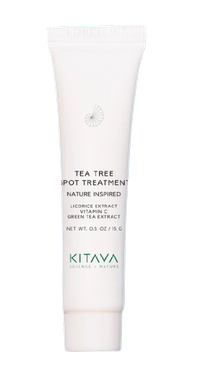
kitavaMD Tea Tree Spot Treatment
In addition to powerhouse tea tree oil that reduces blemishes, this vegan pimple cream has green tea extract, licorice, and kaolin to draw out impurities, improve skin tone, and brighten dark spots.
6. Don't skip the moisturizer
As far as skincare tips go, this is one you probably already know, but it bears repeating: We. All. Need. Moisturizer. Yes, because the world is getting hotter, but also, depending on several factors (age, sex, location, weather), moisture levels can—and do—get wildly inconsistent, so it's up to you to ensure your skincare fills in those hydration gaps.
Dr. Chaudhari confirms: "Believe it or not, all skin types need moisturizer—even oily skin. Hydration is critical to skin health, so if you're more of an oily skin type, avoid heavy creams and try a lightweight moisturizer with non-comedogenic (non-pore clogging) ingredients," she suggests.
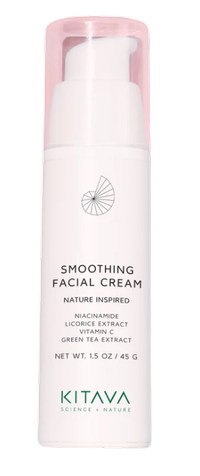
kitavaMD Smoothing Facial Cream
Niacinamide (vitamin B3), licorice extract, and vitamin C all work together to give this hydrating cream its pimple-fighting and spot-lightening properties. Skin types that are acne-prone or those that are sensitive or suffering from redness or irritation can reach for this calming cream, but its non-greasy, lightweight formula is also democratic enough for all complexions.
7. Be patient with results
Dr. Gordon says that we should always allow time for products to work, as real change doesn’t happen overnight.
"When it comes to skincare results, it's all about patience," he says. "On average, our skin cells turn over every four weeks (or between 28-40 days), and it can take two full cycles for noticeable results."
Don't get discouraged if you don't see an immediate change; some acne treatments and even retinol might make things "worse" beforehand, too—part of their job is to increase cell turnover, which might bring any budding blemishes to the surface first, resulting in what many refer to as "purge face"—but rest assured that with consistency and a bit of patience, improvement is on the way.
8. Wear sunscreen 365 days a year
When it comes to skincare tips you should be following without an exception, everyone across the board was in full agreement on sunscreen. "Wear sunscreen with an SPF 30 or higher daily," Dr. Chaudhari says. "Sun protection is vital. SPF 30 is the most commonly recommended level for most skin types, as it blocks nearly 97% of UV rays. Remember to reapply every two hours if outside in considerable sunlight, or if sweating or exposed to water."
Dr. Gordon concurs. "UV damage can occur rain or shine, indoors or outdoors. I recommend wearing a daily SPF, at least SPF 30 or more, no matter the season."
UV rays can penetrate windows even on overcast days, which is why you should be diligent about wearing sunscreen even while inside your home. Try to start the good beauty habit of integrating it as often as possible into your daytime skincare routine, with the goal of it being as non-negotiable as moisturizer.
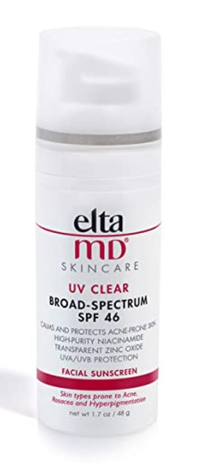
EltaMD UV Clear Facial Sunscreen Broad-Spectrum SPF 46
A transparent, mineral-based sunscreen formulated for acne-prone to sensitive skin, it's lightweight enough to be layered comfortably over skincare and under makeup—something very important to consider, especially if you're trying to be responsible about wearing SPF daily. We especially love the addition of niacinamide and the fact that it's a zinc oxide sunscreen: Not only does this mean it protects against both UVA, a.k.a. aging rays, and UVB, a.k.a burning rays, it also means it's non-irritating on rosacea or discolored skin too.
9. Wear sunglasses
Another one of those skincare tips that our dermatologists agreed on to be crucial can also up your style game (bonus points!): "Squinting can worsen forehead wrinkles and fine lines," warns Dr. Gordon. "Sunglasses help protect against sun damage," he says. If you wear regular glasses or bifocals, you can request for prescription sunglasses from your ophthalmologist.
In addition to sunglasses, "I also recommend wearing wide-brimmed hats," says Dr. Chaudhari, stating that they offer an additional barrier against the sun while outdoors. Not that we all needed another excuse to nab more accessories, but in case you needed that push, you've now got one.
woman&home thanks Dr. Paru Chaudhari and Dr. Justin Gordon of kitavaMD for their time and expertise.
A lifelong creative writer and beautyphile, Eunice Lucero-Lee graduated from De La Salle University in 2002 and was hired a year later to front all beauty coverage for Pink Magazine. A beauty, astrology, and pop culture obsessive and insider for over 18 years, Eunice is an internationally published editor (and now certified astrologer) whose work has been featured in publications such as Cosmopolitan, Esquire, and The Numinous, among many others.
